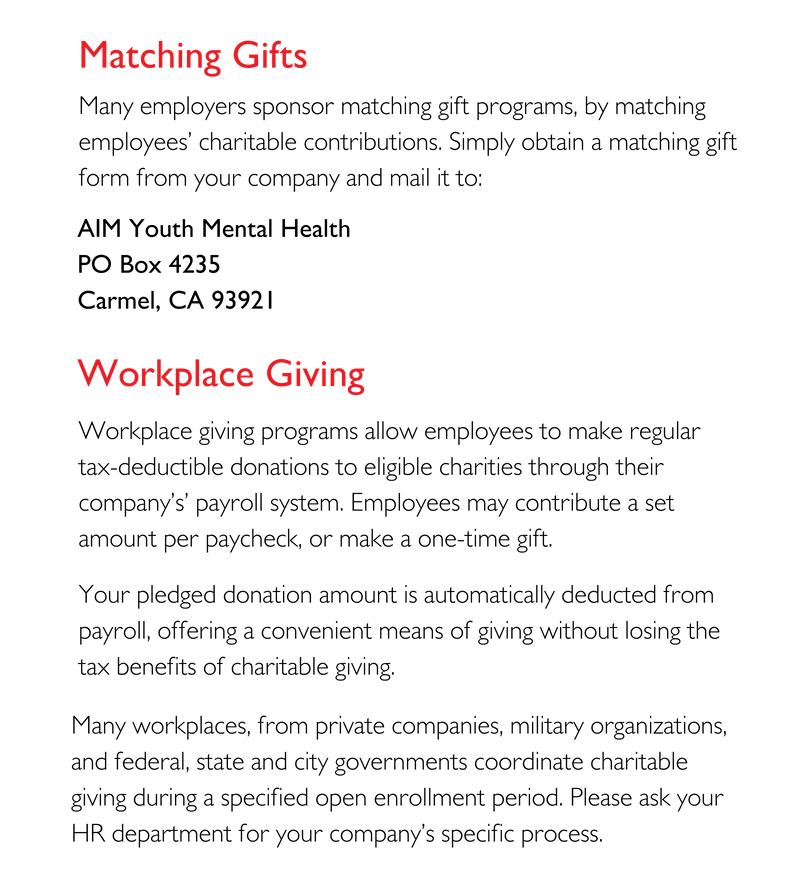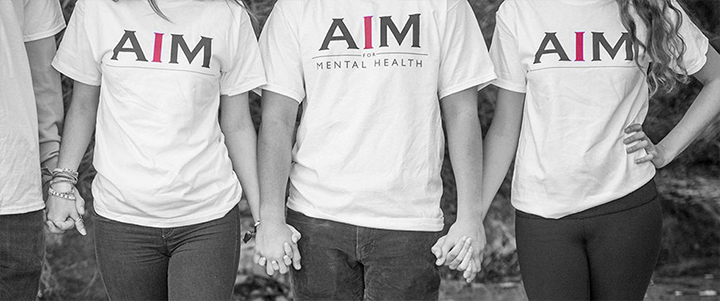
By Robin Wiest Littlefield, Coastal Growers Magazine
Where do you send your resources to fight cancer? The American Cancer Society. How about disaster relief? The Red Cross. Ask Americans how they might donate funds to address mental illness, and they draw a blank. There is no nationally recognizable organization that raises funds for clinical research for diseases of the brain, even though mental illness affects one in four adults. It is also estimated that 17.1 million children have a mental health disorder, more than those with cancer and diabetes combined.
A fledging charitable organization right here on the Monterey Peninsula hopes to fill that void, for our most vulnerable population: children, teens and young adults. This program is called AIM for Mental Health.
Thanks to one enterprising family, a generous foundation, and a community with a big heart, AIM is well on its way.
Since its inception in mid 2014, AIM has raised more than $1 million for clinical research into treatment and cures of mental health disorders in youth. Of this, more than half is already at work in clinical research at UCLA and the University of Washington. A grant of $250,000 for research into teen depression and anxiety is in progress.
Susan Stilwell, an attorney and owner of local inns, founded AIM with her husband, Mark, and their three teenage children. Like many families, philanthropy and volunteering had long been part of their everyday life, but none of the accessible charities focused on mental illness. Together, the Stilwells formed AIM under the experienced wings of the International Mental Health Research Organization (IMHRO) based in Napa Valley, and started reaching out to friends.
A first fundraising dinner during the Concours d’Elegance in Pebble Beach, CA was so successful that word spread, and the following year the Pebble Beach Company donated the use of its elegant hospitality tent in the Parc du Concours for a Thursday night event. Attendance grew and donations swelled. The Monterey Peninsula sent a strong signal that finding better treatment and cures for mental health in children and teens is a community priority.
This year’s “AIM for the Cures” dinner will again take place during the Concours, on August 18, and AIM seeks to fill all 850 seats. For the first time, businesses and foundations are being asked to be sponsors, and the response has been heartening, as it has become increasingly apparent that most families have been touched in some way by mental illness. Part of Stilwell’s due diligence in establishing AIM’s goals and mission has been to seek input from practicing doctors and clinical researchers around the nation, and even the United Kingdom. At the Kennedy Forum on Mental Health in Boston last June, Martin Luther King III declared that, “Mental health is the civil rights movement of today.”
King and former Rep. Patrick Kennedy reinforced the huge gap between the magnitude of the mental health epidemic and the resources devoted to treatment and cures, as well educating parents and children about their options. AIM seeks to drive the movement needed to force national attention on children’s mental health, particularly at a time when brain research has evolved substantially and merely needs the financial resources to get to work.
AIM is not an acronym but a forward thinking word, positive and goal-oriented. The organization targets all youth mental health disorders, including depression and anxiety, ADHD, bipolar and related disorders, schizophrenia and other psychotic disorders, autism spectrum disorders and Asperger’s, neurodevelopmental disorders, OCD and related disorders, conduct disorders, substance abuse and addictive disorders, trauma and stressor related disorders. AIMs focus is so broad because brain disorders overlap. Research into one disorder may find answers that help other disorders.
Besides raising funds for research, AIM raises community awareness about mental health disorders and the options for treatment, in order to address the stigma that discourages open discussion and public support. To that end, AIM organizes an annual walk/rally at Lover’s Point in Pacific Grove in the fall. In a festive environment with music and speakers, area mental health providers set up booths to distribute information and speak one-on-one, while AIM provides breakfast and leads a march to and from the Monterey Aquarium, in solidarity with all those individuals and families grappling with mental illness.
One participant in last year’s rainy walk wrote to thank AIM for the chance to walk alongside her child and show him that she and the hundreds of people beside him cared about his condition. AIM expects participation in the October 23 walk to triple, as public and private schools are organizing student ambassadors to encourage classmates to attend with their families.
AIM believes so strongly that public displays of support are essential to battling stigma, walks are being organized at colleges and universities, starting with the first at USC September 29 and at UCLA later in the fall. AIM chapters are already forming in Los Angeles and Stockton.
AIM’s mission is simple: to build a movement to fund clinical research to find cures for mental health disorders in youth. Based on the Stilwells’ interviews with top clinicians around the country, the most effective way to combat mental illness in general is through early intervention and prevention in children, teens and young adults. As Susan puts it, “They are not only the most at-risk and vulnerable, but also the most likely to experience a positive life-altering outcome if treated early. I also knew that, given the contagious enthusiasm of youth, if we could get our message out to kids, to engage and educate them about the mental challenges, that many of them and their peers are suffering, we could reduce the stigma and build a movement that could change the course of mental health in our lifetime.”



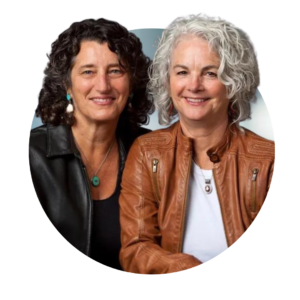








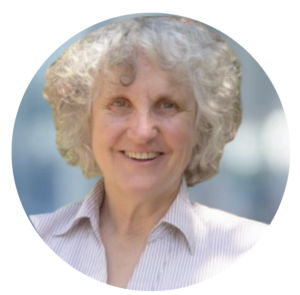
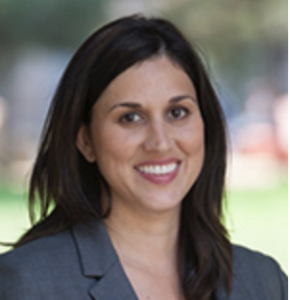




 Moving Upstream: A Proactive Approach to Addressing Behaviors and Bullying
Moving Upstream: A Proactive Approach to Addressing Behaviors and Bullying Krista Reuther is the Assistant Director of Ohana’s Community Health and Prevention Program. She received her Masters in Public Health and Social Work at UC Berkeley. She comes to this position after 14 years of clinical social work experience at Stanford Children’s Hospital in pediatric oncology, critical care, and bereavement. Her goal is to reduce the incidence of mental illness in children and adolescents in Monterey County.
Krista Reuther is the Assistant Director of Ohana’s Community Health and Prevention Program. She received her Masters in Public Health and Social Work at UC Berkeley. She comes to this position after 14 years of clinical social work experience at Stanford Children’s Hospital in pediatric oncology, critical care, and bereavement. Her goal is to reduce the incidence of mental illness in children and adolescents in Monterey County. Dr. Guss is a 35-year veteran educator with a doctorate degree in Educational Leadership. She served as a classroom teacher for 10 years, including two years as a teacher in a bilingual program in South Central Los Angeles. She has also served as a college professor, mentor teacher for new teachers, and a master teacher for teacher candidates completing their student teaching experience. She continues to be a strong advocate for the teaching profession.
Dr. Guss is a 35-year veteran educator with a doctorate degree in Educational Leadership. She served as a classroom teacher for 10 years, including two years as a teacher in a bilingual program in South Central Los Angeles. She has also served as a college professor, mentor teacher for new teachers, and a master teacher for teacher candidates completing their student teaching experience. She continues to be a strong advocate for the teaching profession. Fellowship: Stanford University School of Medicine (1994) CA
Fellowship: Stanford University School of Medicine (1994) CA Michael G. Thompson, Ph.D. is a consultant, author and psychologist specializing in children and families. He is the supervising psychologist for the Belmont Hill School and has worked in more than seven hundred schools across the United States, as well as in international schools in Central America, Europe, Africa and Asia.
Michael G. Thompson, Ph.D. is a consultant, author and psychologist specializing in children and families. He is the supervising psychologist for the Belmont Hill School and has worked in more than seven hundred schools across the United States, as well as in international schools in Central America, Europe, Africa and Asia.
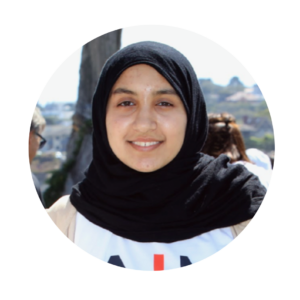 is 15 years old and a sophomore at Marina High School in Marina, CA. Her academic interests include math, history, and psychology. She joined the AIM Ideas Lab in 2021 because she wanted to be a part of something that could have a great impact on her community. Marwa is interested in youth mental health because she has always been fascinated with the human mind and she wants to support those that are suffering who may feel like their challenges in life aren’t important enough or are too afraid to seek necessary help.
is 15 years old and a sophomore at Marina High School in Marina, CA. Her academic interests include math, history, and psychology. She joined the AIM Ideas Lab in 2021 because she wanted to be a part of something that could have a great impact on her community. Marwa is interested in youth mental health because she has always been fascinated with the human mind and she wants to support those that are suffering who may feel like their challenges in life aren’t important enough or are too afraid to seek necessary help. Giovanna Panetta is a 16 year old junior at Carmel High School. She has always been called to STEM subjects, specifically biology. The AIM Ideas Lab instantly attracted her attention as a research opportunity. Gia has always comprehended the importance of mental health. She knows that COVID only exacerbated previously existing problems, and that as a community we can try and find the root of those problems. Mental health is an integral part of life, and can impede a body’s ability to be healthy. She strongly believes that life is worth living, and she wants to help anyone that thinks otherwise.
Giovanna Panetta is a 16 year old junior at Carmel High School. She has always been called to STEM subjects, specifically biology. The AIM Ideas Lab instantly attracted her attention as a research opportunity. Gia has always comprehended the importance of mental health. She knows that COVID only exacerbated previously existing problems, and that as a community we can try and find the root of those problems. Mental health is an integral part of life, and can impede a body’s ability to be healthy. She strongly believes that life is worth living, and she wants to help anyone that thinks otherwise. Dr. Friedman completed her undergraduate degree in Psychology from University of California San Diego (UCSD). She went on to complete her masters and doctorate degrees (Ph.D.) in Clinical Psychology from Rosalind Franklin University of Medicine and Science/Chicago Medical School. Dr. Friedman completed her pre-doctoral internship at Rush University Medical Center, Chicago, IL, and her post-doctoral fellowship training at the VA San Diego Healthcare System. Her clinical training and experience has been focused primarily on comprehensive assessment and effective treatments for anxiety, mood and related disorders. Dr. Friedman has extensive experience in providing Cognitive Behavioral Therapies for anxiety disorders (e.g. worry, OCD, social anxiety, phobias and PTSD), depression, adjustment disorders/life stress, insomnia and body-focused repetitive behaviors (e.g. Trichotillomania and skin picking). She has received training in evidence-based interventions for a variety of specific problems, including exposure with response prevention (ERP) for treatment of OCD, Prolonged Exposure (PE) for treatment of PTSD, and Cognitive Behavioral Therapy for Insomnia (CBT-I). Moreover, she has specialty training in the treatment of childhood anxiety and related disorders, such as ADHD, selective mutism, separation anxiety, PTSD, depression and specific phobias. In addition, Dr. Friedman has developed an expertise in research on Trichotillomania and body-focused repetitive behaviors, which has led to numerous local and national presentations. Dr. Friedman regularly attends local and national conferences, training seminars and workshops in order to stay informed on the most up to date treatments and apply state of the art science into her clinical practice.
Dr. Friedman completed her undergraduate degree in Psychology from University of California San Diego (UCSD). She went on to complete her masters and doctorate degrees (Ph.D.) in Clinical Psychology from Rosalind Franklin University of Medicine and Science/Chicago Medical School. Dr. Friedman completed her pre-doctoral internship at Rush University Medical Center, Chicago, IL, and her post-doctoral fellowship training at the VA San Diego Healthcare System. Her clinical training and experience has been focused primarily on comprehensive assessment and effective treatments for anxiety, mood and related disorders. Dr. Friedman has extensive experience in providing Cognitive Behavioral Therapies for anxiety disorders (e.g. worry, OCD, social anxiety, phobias and PTSD), depression, adjustment disorders/life stress, insomnia and body-focused repetitive behaviors (e.g. Trichotillomania and skin picking). She has received training in evidence-based interventions for a variety of specific problems, including exposure with response prevention (ERP) for treatment of OCD, Prolonged Exposure (PE) for treatment of PTSD, and Cognitive Behavioral Therapy for Insomnia (CBT-I). Moreover, she has specialty training in the treatment of childhood anxiety and related disorders, such as ADHD, selective mutism, separation anxiety, PTSD, depression and specific phobias. In addition, Dr. Friedman has developed an expertise in research on Trichotillomania and body-focused repetitive behaviors, which has led to numerous local and national presentations. Dr. Friedman regularly attends local and national conferences, training seminars and workshops in order to stay informed on the most up to date treatments and apply state of the art science into her clinical practice. Dr. Piacentini is a board-certified clinical child and adolescent psychologist and Professor in the UCLA Department of Psychiatry and Biobehavioral Sciences. He directs the UCLA Child OCD, Anxiety, and Tic Disorders Clinic and Tourette Association Center of Excellence which provide diagnostic evaluation and treatment (both therapy and medication) for youth with the above problems. He also directs the UCLA Center for Child Anxiety Resilence, Education, and Support (CARES; carescenter.ucla.edu) which provides education and programming to parents, teachers, and clinicians about anxiety prevention and management.
Dr. Piacentini is a board-certified clinical child and adolescent psychologist and Professor in the UCLA Department of Psychiatry and Biobehavioral Sciences. He directs the UCLA Child OCD, Anxiety, and Tic Disorders Clinic and Tourette Association Center of Excellence which provide diagnostic evaluation and treatment (both therapy and medication) for youth with the above problems. He also directs the UCLA Center for Child Anxiety Resilence, Education, and Support (CARES; carescenter.ucla.edu) which provides education and programming to parents, teachers, and clinicians about anxiety prevention and management. Citlalli Nava is 18 years old and a first year majoring in Psychology at Hartnell Community College in Salinas, CA. She is passionate about understanding how mental health affects how youth think, act, and feel. Citlalli joined the AIM Ideas Lab in 2021 after witnessing the increase in mental health challenges in teenagers and considering the mental health issues they are facing. Citlalli is interested in youth mental health because it is a real problem faced by her generation.
Citlalli Nava is 18 years old and a first year majoring in Psychology at Hartnell Community College in Salinas, CA. She is passionate about understanding how mental health affects how youth think, act, and feel. Citlalli joined the AIM Ideas Lab in 2021 after witnessing the increase in mental health challenges in teenagers and considering the mental health issues they are facing. Citlalli is interested in youth mental health because it is a real problem faced by her generation. Clinical and community psychologist and health care innovator Arthur C. Evans Jr., PhD, is CEO of the American Psychological Association, the leading scientific and professional organization representing psychology in the United States. With more than 146,000 researchers, educators, clinicians, consultants, and students as members, APA promotes and disseminates psychological knowledge to benefit society and improve lives – a mission consistent with Evans’ life work.
Clinical and community psychologist and health care innovator Arthur C. Evans Jr., PhD, is CEO of the American Psychological Association, the leading scientific and professional organization representing psychology in the United States. With more than 146,000 researchers, educators, clinicians, consultants, and students as members, APA promotes and disseminates psychological knowledge to benefit society and improve lives – a mission consistent with Evans’ life work.

